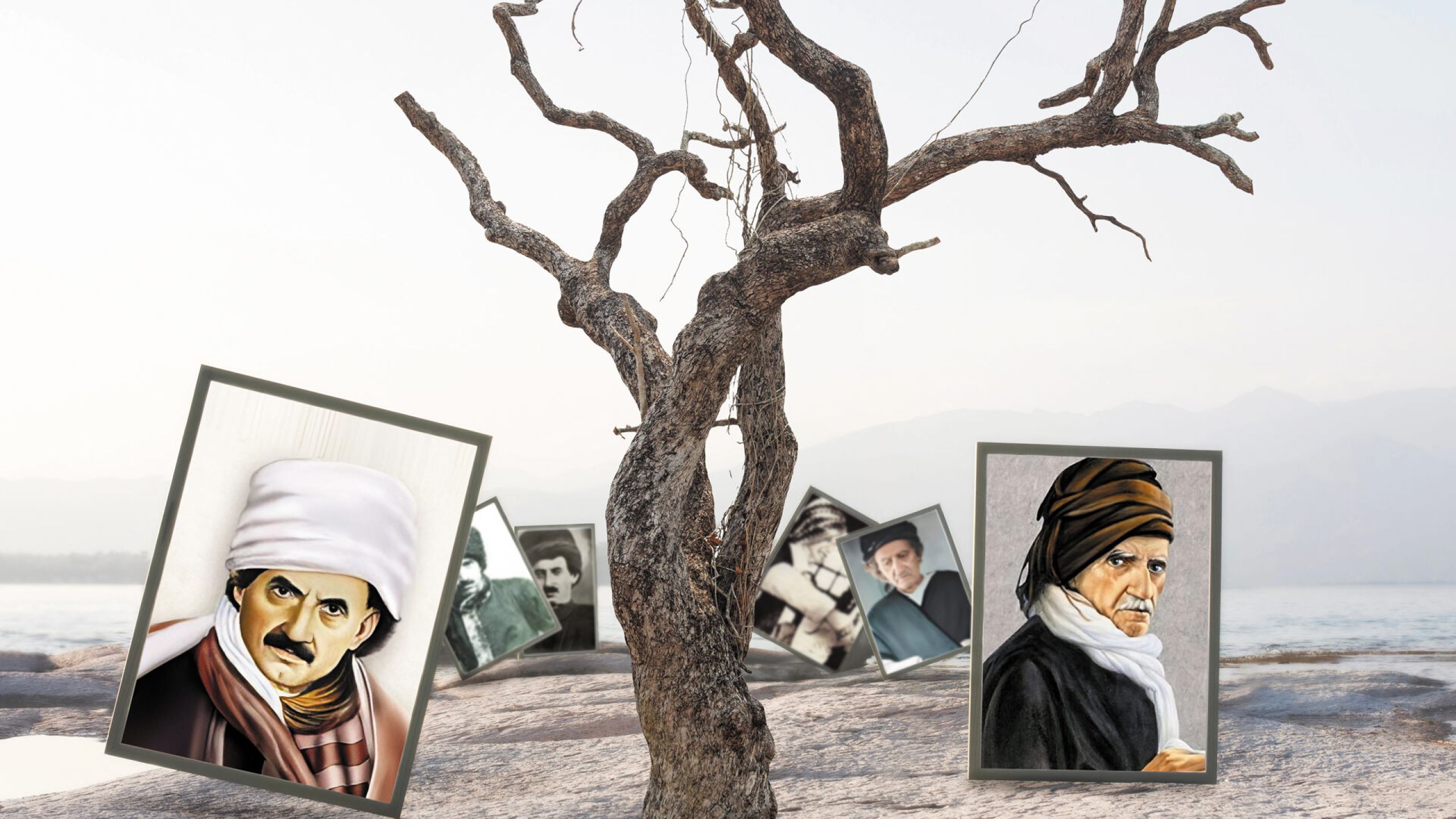The Traveler Renewed in Two Words

In This Article
-
Humanity’s failure to recognize that they are intricately woven with Divine Names, Attributes, and Qualities often leads them to become infatuated with the material world, essentially worshipping it.
-
Recognizing the squandering of one’s resources is painful, and facing bankruptcy is sorrowful. Being unprepared for the journey and failing to see oneself as a traveler are also distressing aspects of this realization.
-
With a sound heart, one can acknowledge their errors and learn from them. Those who refuse to learn from their mistakes are destined to repeat them.
Bediuzzaman Said Nursi, the great sage of the twentieth century, divides his life into three distinct phases: Old Said, New Said, and Third Said. In his 40s, Old Said undergoes a profound spiritual transformation while actively seeking solutions to the challenges faced by believers in society, thus becoming New Said. New Said, deeply influenced by the truths of faith, becomes primarily focused on matters of faith. In his final decade, Third Said dedicates himself to preparing for the journey beyond this life [1].
Bediuzzaman shares an imaginary event that played a pivotal role in his transformation into New Said. Although not a dream in the traditional sense, the images he witnessed in this dream-like state, or vision, held significant spiritual insights. However, he describes this experience as an “imaginary event” to avoid stirring jealousy in others.
Bediuzzaman states, “O world-adoring one charmed by the worldly life and ignorant of the meaning of your nature as the perfect pattern of creation!” [2].
Humanity’s failure to recognize that they are intricately woven with Divine Names, Attributes, and Qualities often leads them to become infatuated with the material world, essentially worshipping it. The absence of this sensation results in heedlessness. With the light of faith, individuals can recognize the presence of the Creator, Owner, and Lord of everything, including themselves. When they search, they discover what they are seeking.
He initiates the description of his transformation with the following words:
“I found myself a traveler going on a long journey. My lord who set me making this journey gradually gave me some of the sixty gold coins He had allotted to me. This went on for some time, and after a while I arrived at an inn that provided some entertainment. In one night I spent ten gold coins on gambling and entertainment, and in pursuit of fame. The next morning, I had no money left. Nor could I do trade and buy provisions I would need at my destination. All I had left was pain, sorrow, and regret left by sins and illicit pleasures. While I was in this wretched state, a man suddenly appeared and said to me: ‘You have lost all you had and deserve to be punished. Moreover, you will go on to your destination with no money’” [3].
The events narrated by Bediuzzaman are symbolic, reflecting his self-examination and the lessons learned from the imaginary sins he distanced himself from in real life.
Recognizing the squandering of one’s resources is painful, and facing bankruptcy is sorrowful. Being unprepared for the journey and failing to see oneself as a traveler are also distressing aspects of this realization.
The word “suddenly,” emphasized in the text, highlights the necessity of experiencing unexpected events to prompt awakening and change.
The Greek term “metanoia” signifies a shift in mindset or paradigm, a transformation of the heart, and a spiritual change into a new state [4]. During such a spiritual transformation, the methods used to shed light on one’s blind spots, refine one’s perception, and guide one’s reasoning heart frequently involve startling and bewildering changes or hardships.
Bediuzzaman continues, “‘But if you use your mind, the door of repentance is not closed. When you gradually receive the remaining fifteen gold coins, keep half in reserve and use it to buy what you will need at your destination.’ My soul did not agree, so the man said: ‘Save a third of them then.’ Still my soul balked. The man insisted: ‘Then a quarter.’ I saw that my soul could not abandon its addictions, so the man turned away indignantly and disappeared” [5].
Someone with sound judgment experiences remorse, recognizing their mistakes as a sign of wisdom. The greatest fault lies in not acknowledging one’s own faults. Failing to rectify mistakes when the opportunity arises only results in self-inflicted damage. The ego that indulges in its desires disregards well-intentioned advice and forfeits the chance for mercy.
With a sound heart, one can acknowledge their errors and learn from them. Those who refuse to learn from their mistakes are destined to repeat them. Understanding that the past cannot be changed does not negate the importance of regret; it signifies the humility of a healthy heart.
In Christopher Nolan’s film Inception, the protagonist, Cobb [6], grapples with painful memories of his wife and seeks to alter them. The song Non, Je Ne Regrette Rien by Édith Piaf, featured in the film, hints that Cobb cannot confront the truth, and returns home without sincere regret [7].
“At once, I found myself on a high-speed train travelling through a tunnel. I was alarmed, but there was no escape. To my surprise, I saw very attractive flowers and tasty-looking fruits alongside the track, hanging out from the sides of the tunnel. I foolishly tried to pick some of them. But all around them were thorns that, due to the train’s speed, tore at my hands and made them bleed. They cost me very much” [8].
Indulging in unlawful and transient pleasures while realizing their fleeting nature brings both pain and parting. What is consumed fails to satisfy, what is abandoned holds no value, and what extinguishes does not bring gratification. Encountering endings and separations wounds the heart.
Things perceived by the eye but difficult for the mind to comprehend are often tests. Wisdom, fortified by reason and experience, considers the consequences of choices and the fate of desires. It guides one towards making sensible decisions, avoiding risks where the potential loss outweighs any gain. A sound conscience gently whispers, “Is it worth it?”
“Suddenly an attendant came and said: ‘Give me five cents and I’ll give you as many flowers and fruits as you want. With your hands all cut up, you are losing a hundred instead of five cents. Besides, there is a punishment for picking them without permission’” [9].
The price of lawful pleasures is light and sufficient for enjoyment. Staying within limits brings contentment. True satisfaction arises from recognizing the blessings and the benevolence of The All-Generous. The All-Merciful satisfies our souls, The All-Wise our intellects, and The All-Compassionate our hearts.
“Depressed by this condition, I looked out the window to see when the tunnel would end. But there was no end in sight. The tunnel’s walls had many openings into which passengers were being thrown. Suddenly I caught sight of an opening just opposite me with a gravestone on either side. When I peered out, I made out my name, ‘Said,’ written in capital letters on a gravestone. I gave a cry of bewilderment and repentance” [10].
Life in this world resembles a tunnel, and humanity rides a speeding time train with a new carriage added each year. There is no escape, and the only exit leads to one’s own grave. Sometimes, the grave looms in the distance, while other times, it’s very close.
One who encounters the journey’s end without adequate preparation experiences profound sorrow and astonishment. “A cry of bewilderment and repentance” reflects the genuine shock of a person who has awakened.
Preparing for death stands as one of life’s most crucial objectives. Filmmaker Andrey Tarkovsky also underscores that art’s purpose is to ready individuals for death, unveiling the deepest recesses of their inner selves [11].
“Unexpectedly, I heard the voice of the man who had advised me at the inn, asking: ‘Have you come to your senses?’ I replied: ‘Yes, but I’ve been left powerless, and there is nothing I can do.’ He told me to repent and trust in God, to which I replied that I did” [12].
When faced with the consequences, reason regains its foothold. Individuals inevitably confront the severe repercussions of their desires and choices, at times testing the limits of their endurance. Even if the conscience has not transgressed beyond redemption, there is still hope.
Helplessness invokes Divine mercy. The advisor, the person who provides guidance with wisdom, compassion, and sincerity for the individual’s well-being, may not reappear but calls from a distance. Offering a second chance, he proposes two actions in two words: repentance and trust. The fortunate interlocutor, making a wise choice and sparing himself the murmurs of his ego, declares, “I did,” meaning both actions. Death becomes the catalyst for awakening.
“Then I woke up and I found myself transformed into the New Said; the Old Said had gone away” [13].
Repentance from the depths of the heart cleanses one’s past, while trust purifies one’s future. The mind, with its ability to traverse time, often preoccupies individuals with past regrets and future anxieties, disconnecting them from the present moment. A person with sound judgment, realizing the extended journey and the opportunity at hand, embraces repentance and trust, concentrating on the central point that intersects with eternity and conceals profound secrets, constantly renewing themselves. One who glimpses the journey’s end is no longer the same as before.
Knowledge alone cannot renew a person; true transformation requires confronting reality. Just as angels thrive on light, knowledge finds its manifestation in actions as meanings are assimilated. Satisfying one’s soul requires grasping the significance of life’s experiences, not merely the words themselves.
Viewing oneself as a traveler fosters awareness and preparation. Our journey, originating in the Realm of Spirits and continuing through the mother’s womb, persists in this world. It encompasses childhood, youth, old age, the transition from the confines of the body to the Intermediate Realm, and the return to a new body through resurrection. The journey toward a life where death is conquered endures, marked by the relinquishment of everything, including life itself. When the time comes, individuals realize that what must be returned is an entrusted gift.
Now is the time to invest in “moments” without sudden departures. As Bediuzzaman expresses, “A guest has to consider the journey” [14].
Notes
- Bediüzzaman Said Nursî, Sözler, İstanbul: Şahdamar Yayınları, 2010, s. 346; Bediüzzaman Said Nursî, Şuâlar, İstanbul: Şahdamar Yayınları, 2010, s. 518.
- Bediüzzaman Said Nursi, The Words, New Jersey: The Light, 2013, p. 341.
- Ibid.
- Peter M. Senge, The Fifth Discipline: The Art and Practice of the Learning Organization, New York: Currency Doubleday, 1990, p. 13.
- Nursi, Ibid, p. 341.
- “Cobb” phonetically resembles words in languages like Sanskrit, Hindi, and Urdu that mean “sleep.” For instance, the Persian word “hab” means sleep.
- Jason T. Eberl ve George A. Dunn (ed.), The Philosophy of Christopher Nolan, London: Lexington Books, 2017, p. 134.
- Nursi, Ibid, p. 342.
- Ibid.
- Ibid.
- Andrey Tarkovski, Mühürlenmiş Zaman, Ter. Füsun Ant, İstanbul: Agora Kitaplığı, 2008, p. 32.
- Nursi, Ibid, p. 342.
- Ibid.
- Bediüzzaman Said Nursi, The Gleams, New Jersey: Tughra Books, 2013, p. 331.









